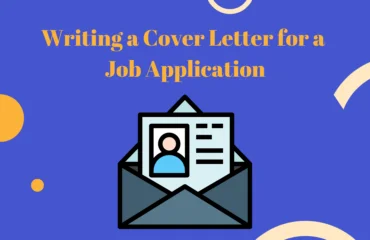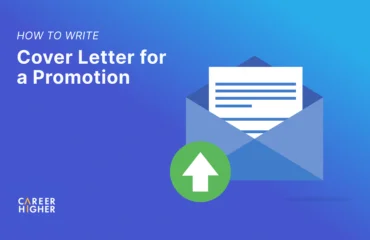Table of Contents
- 1. Focusing content on the employer’s specific needs
- 2. Showing passion for the role, employer, and industry
- 3. Creating concise and succinct content
- 4. Sending a cover letter, even when it’s optional
- 5. Aligning language with the company’s culture and recruiter’s expectations
- 6. Speculative cover letter
The emergence of COVID-19 has profoundly caused disruptions in the job market and employment requirements of most companies. This has triggered unprecedented mass layoffs and cutbacks in 2020. Although the pandemic’s aftermath remains in 2021, the introduction of vaccines raises the hope of major progress soon. Jobs will return and hiring needs are going to increase.
With the high unemployment rate brought by the pandemic, the need to stay ahead of the competition has never been greater. One of the best ways to achieve a competitive advantage is to learn how to write a cover letter effectively. A cover letter provides the prospective employer a deeper insight into who you are beyond your professional background and credentials. Many recruiters use this as a way to differentiate between candidates with similar credentials. In this article, we have gathered the top cover letter trends you can adopt to maximize your application success rate in 2021.
1. Focusing content on the employer’s specific needs
It is certainly more efficient to write a general cover letter when applying for multiple positions. However, employers typically receive a tremendous number of applications for every advertised job vacancy. In such a situation, a generic, non-tailored cover letter will not give you a distinctive advantage as an applicant. In fact, it diminishes your chances of landing an interview regardless of your qualifications.
In 2021, employers would still prefer candidates who invested time customizing their cover letters over those who didn’t. Hence, writing the best cover letter that introduces you as the perfect candidate for the job is a must. Nonetheless, it is vital to ensure that the content does not simply restate your resume. Your cover letter should complement your resume by focusing on the experience, skills, and key accomplishments related to the job.
To determine what to include in a cover letter, it is essential to obtain a comprehensive understanding of the employer’s specific needs. This can be done by analyzing the job posting and listing the employer’s criteria. Then, highlight the skills and experience you have and address how your skills match the job requirements.
2. Showing passion for the role, employer, and industry
Employers are not just interested in someone who can get the job done. They are looking to find someone committed and ready to put in the effort required to achieve the desired results. This would still be the case in 2021. To boost your chances of landing the job, convey passion for the work, company, and industry. This can be your strong selling point if packaged correctly.
Simply stating you are passionate about working for a company is not enough. You need to include information to showcase your motivation. Invest time in understanding the role and researching the company. This will allow you to effectively communicate your interest in the job and your reason why the company is your employer of choice.
3. Creating concise and succinct content
Due to the enormous volume of applications recruiters receive daily, they have limited time to spend reading cover letters. This is a fact that would remain unchanged in 2021. Thus, we strongly recommend limiting the length to one full page and using four to five paragraphs based on your needs. The only exception is when an employer requests a specific cover letter length in the job posting. Nevertheless, a page should provide enough space to have compelling and concise descriptions of your relevant skills, experience, and qualifications.
To ascertain effectiveness, keep paragraphs focused by concentrating on one central idea and leading with a strong topic sentence. It is recommended to conclude each paragraph with an attention-grabbing final thought for maximum impact. While the objective is to be concise, it is also essential to ensure each statement conveys your important qualifications.
4. Sending a cover letter, even when it’s optional
Writing a cover letter for a job application can be a time-consuming and daunting task. As a consequence, many applicants are not keen on including cover letters in their applications. However, according to a survey, 53% of employers favor applicants who submitted a cover letter over those who didn’t. Although some believe that cover letters are outdated, statistics show that they can be a deciding factor for hiring.
Sending a cover letter is not explicitly required by most employers. Nevertheless, not submitting one can lessen your chances of winning the job. With the current job market situation, candidates would need all the chances they can get to get employed. In this case, a cover letter plays an essential role in helping job seekers position themselves as top candidates.
5. Aligning language with the company’s culture and recruiter’s expectations
According to best practice, the right tone and style with a balance of formality and flexibility are key to writing an effective cover letter. The cover letter should be in line with the company culture and hiring manager’s expectations to create a good impression. To achieve this, it is imperative to take the time to know your target employer. Understand who they work for and what they do.
Research the company to get a deeper insight into its pain points, successes, and failures. Then, you can leverage the information by using it as a framework to demonstrate your distinctive value. Someone who adopts a style or language appropriate to the business provides an impression that you did your homework. Getting into the employer’s state of mind makes it easier for you to sound like a good fit for the team. Therefore, it maximizes the opportunity of differentiating yourself from the crowd.
6. Speculative cover letter
With the consequences of the COVID-19 crisis still unfolding in 2021, the job market will continue to be susceptible for a while. As a result, writing a prospecting cover letter is becoming more popular with candidates eager to find a job sooner. This is an unconventional way of sending a cover letter to apply for a job that is not currently being advertised. Opening a dialogue with your prospective employer helps you position yourself at the top list when a suitable vacancy comes up.
A prospective cover letter is similar to a standard cover letter in terms of format and structure. In contrast, a prospective cover letter should detail your relevant transferable skills and past work experience. It also needs to demonstrate why you would be a good fit for the company. Have a look at the company website to find out to who to address the cover letter. This ascertains the most appropriate employee or department reads your letter.
Today, we are faced with the toughest job market in decades. A cover letter is an integral component of your job search strategy in 2021. It is an opportunity to showcase how your unique combination of skills, experience, and educational background meets the employer’s key requirements. By adopting your writing with the latest cover letter trends, you will be a few steps ahead of the competition.











